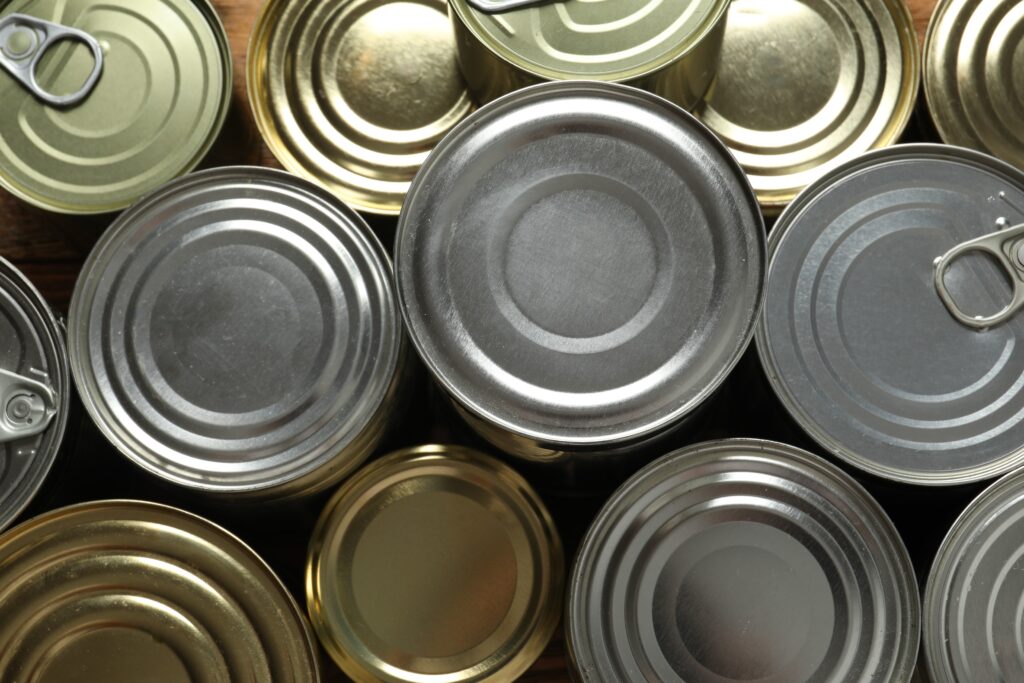Forty-five signatories from across the grocery supply chain have committed to reducing food and drink waste under the third phase of the Courtauld Commitment, officially launched today (May 9).
As anticipated by letsrecycle.com (see letsrecycle.com story), the voluntary agreement sets out targets for 2013-15 for retailers, brands and manufacturers to reduce food and drink waste and improve packaging design, building on the targets set out in Courtauld 2, which finished in December 2012.

The commitment is funded by Westminster, Scottish, Welsh and Northern Ireland Governments and delivered by the Waste & Resources Action Programme (WRAP).
The new targets, listed below, need to be achieved against a backdrop of sales growth and an increase in the amount of food produced in the UK.
Courtauld Commitment Phase 3 targets are:
- To reduce household food and drink waste by 5% in tonnage terms against a 2012 baseline- this represents a 9% reduction in real terms to counter the expected increase in food purchased.
- Reduce traditional grocery ingredient, product and packaging waste in the grocery supply chain by 3% in tonnage terms against a 2012 baseline- signatories will have to make an 8% reduction in real terms to counter the expected increase in production and sales.
- Improve packaging design through the supply chain to maximise recycled content as appropriate, improve recyclability and deliver product protection to reduce food waste, while ensuring there is no increase in the carbon impact of packaging – signatories will have to make a 3% reduction in real terms to counter the expected sales increase.
According to WRAP, the agreement targets a further 1.1 million tonnes waste reduction and the new targets could deliver 1.6 billion of savings to consumers, the food and drink sector, retailers and local authorities.
Their delivery is also hoped to improve improve the competitiveness and resilience of the supply chain, and significantly reduce the impact on the environment.
However, some figures in the recycling sector have described the agreement as just more of the same and said that it was very similar to Courtauld 2 and not particularly innovative.
Consumers
To achieve the targets, signatories will need to help consumers reduce waste in the home. This will include delivering targeted food waste reduction initiatives, for example with the Love Food Hate Waste campaign, clearer product labelling and improved packaging design, while also tackling their own waste in the supply chain.
‘Courtauld 3 builds of the achievements of Courtauld 1 and 2 by tackling the areas that bring the greatest financial benefits to UK plc and deliver significant reduction in environmental impact.’
Dr Liz Goodwin, chief executive, WRAP
WRAP said that significant achievements were made on optimising grocery packaging under Courtauld 1 and the first two years of Courtauld 2, with final results to be announced later this year. Adding up achievements under both agreements to date indicates that around 1 million tonnes less packaging have been used, it said. And, to date, 2.3 million tonnes of waste has been prevented by the Courtauld signatories and consumers during the first two phases of the Commitment. The value of waste prevented is around 3.5bn.
The organisation said: There are now limited opportunities for more substantial reductions in packaging without risking increases in waste. The focus now is to optimise packaging to reduce food waste and improve recyclability to help consumers and local authorities, while ensuring no increase in the carbon impact against a back drop of increasing sales volume. The target will also help achieve the UK Governments ambitious new packaging recycling targets for 2013 – 2017.
Benefits
Commenting on the new commitment, WRAP chief executive Dr Liz Goodwin said: Courtauld 3 builds on the achievements of Courtauld 1 and 2 by tackling the areas that bring the greatest financial benefits to UK plc and deliver significant reduction in environmental impact. Over the course of the three phases of the agreement, a 20% reduction in UK household food waste is achievable, a deeply impressive outcome.
The agreement was welcomed by environment ministers in England, Scotland, Wales and Northern Ireland.
Related Links
In England, Lord de Mauley, Defras resource management minister, said: Together we are cutting down on waste to deliver 1.6 billion of savings, which is good for consumers, the food and drink sector and local authorities. Its crucial that we keep reducing waste so we can continue to see significant benefits for businesses and the environment.
Signatories
The45 signatories which have joined Courtauld 3 are fewer in number than the 53 signed up to Coutauld 2. However, a spokeswoman for WRAP explained that when Courtauld 2 was first launched, it only had 28 signatories and that it expected the number to sign up to Courtauld 3 togrow as time went on.
She said: “Some of the signatories which have not yet signed up are undergoing structural changes or mergers and are not in a position to sign up at present but we envisage they will sign up. We expect more to come on board over time. Last time we only had 28 signatories at the start so we are in a far better position.”
She also pointed out that the new agreement had attracted four new signatories – Aldi, Highland Spring Group, Kingsland Wine and Spirits and Dawnfresh Seafood.
The full list of Courtauld Commitment Phase 3 signatories are:










Subscribe for free